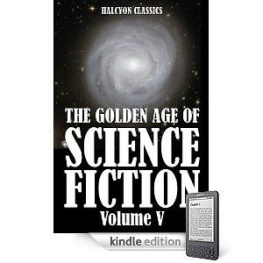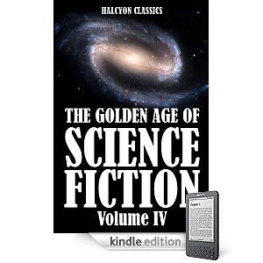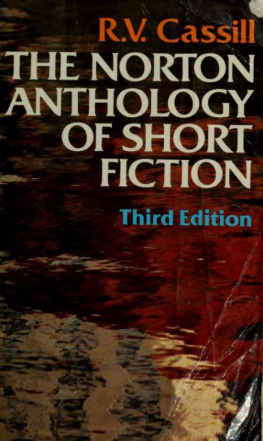Ajzek Azimov - Before The Golden Age
Here you can read online Ajzek Azimov - Before The Golden Age full text of the book (entire story) in english for free. Download pdf and epub, get meaning, cover and reviews about this ebook. genre: Science fiction. Description of the work, (preface) as well as reviews are available. Best literature library LitArk.com created for fans of good reading and offers a wide selection of genres:
Romance novel
Science fiction
Adventure
Detective
Science
History
Home and family
Prose
Art
Politics
Computer
Non-fiction
Religion
Business
Children
Humor
Choose a favorite category and find really read worthwhile books. Enjoy immersion in the world of imagination, feel the emotions of the characters or learn something new for yourself, make an fascinating discovery.
- Book:Before The Golden Age
- Author:
- Genre:
- Rating:4 / 5
- Favourites:Add to favourites
- Your mark:
- 80
- 1
- 2
- 3
- 4
- 5
Before The Golden Age: summary, description and annotation
We offer to read an annotation, description, summary or preface (depends on what the author of the book "Before The Golden Age" wrote himself). If you haven't found the necessary information about the book — write in the comments, we will try to find it.
Before The Golden Age — read online for free the complete book (whole text) full work
Below is the text of the book, divided by pages. System saving the place of the last page read, allows you to conveniently read the book "Before The Golden Age" online for free, without having to search again every time where you left off. Put a bookmark, and you can go to the page where you finished reading at any time.
Font size:
Interval:
Bookmark:
Before the Golden Age
A Science Fiction Anthology of the 1930s
Edited by Isaac Asimov
INTRODUCTION
TO MANY science fiction readers who are now in their middle years, there was a Golden Age of Science Fictionin capital letters.
That Golden Age began in 1938, when John Campbell became editor of Astounding Stories and remolded it, and the whole field, into something closer to his hearts desire. During the Golden Age, he and the magazine he edited so dominated science fiction that to read Astounding was to know the field entire.
In that sense, the Golden Age endured till 1950, when other magazines, such as Galaxy and The Magazine of Fantasy and Science Fiction, entered the field. The editorial personalities of H. L. Gold and Anthony Boucher were as strong in their ways as Campbells, so the field grew wider and more diverse. In many ways, it improved still further as it spilled out of the magazines and into the books, the paperbacks, and the electronic media.
But then the individual could no longer comprehend the field entire. It grew too large for one to do more than sample, and the Golden Age, when all of science fiction could belong to the reader, was over.
I lived through the Golden Age in the best possible way, for I was among the first of the new writers Campbell discovered, and I am sure there was no other in whom he took so personal and paternal an interest. My book The Early Asimov (Doubleday, 1972) is both my memorial to those years and my tribute to John.
But let us forget the capital-letter Golden Age, and let us be more personal. To anyone who has lived a life that has not been utterly disastrous, there is an iridescent aura permeating its second decade. Memories of the first decade, extending back to before the age of ten, are dim, uncertain, and incomplete. Beginning with the third decade, after twenty, life becomes filled with adult responsibility and turns to lead. But that second decade, from ten to twenty, is gold; it is in those years that we remember bliss.
It is the second decade that is the golden age for each individual; it is the memory of life as it was then, that we consider to be life as it ought to be. For any science fiction reader, the gold of the second decade of his life permeates the stories he read at that time, so I frequently hear enthusiasts of thirty speak of the golden age of the 1950s. If I live out my normal lifetime, I fully expect to hear some rotten kid talk to me of the golden age of the 1970s. (I will rise from my wheel chair and hit him with my cane.)
Well, then, what about me? My own golden age (small letters) lay in the 1930s. It came in the decade just before the Golden Age (capital letters), and it had a glory for meand a glory for everyone, for it was in my golden age that the personalities that molded the Golden Age, including Campbell himself, were themselves molded.
The science fiction stories I read in the 1930s were in magazines I could not keep. I took each magazine, as it arrived, from my fathers newsstand and then, having read it as quickly as I could, I returned it to my fathers newsstand so that it might be sold. I cultivated a light hand, which left the magazine in its pristine crispness even though I had read, rabidly, every word on every page. (I had to, for if the magazine suffered, my father would have issued a ukase forbidding me to touch any of them, and I dont know about you, but my father expected, and got, instant obedience.)
So I never reread those science fiction stories of my personal golden age after that first reading. Oh, a very few of them, yes, when they were reprinted. However, very few stories published before the Golden Age have been reprinted. The Coming of Campbell wiped out all that went before.
The science fiction of the thirties seems, to anyone who has experienced the Campbell Revolution, to be clumsy, primitive, and naive. The stories are old-fashioned and unsophisticated.
All right, grant that they are all those things. Nevertheless, there was a rough-hewn vigor about them that sophistication has, to some extent, lost us.
Besides, I remember them. Some of them, although I read them only once at a very early age, I remember over a space of forty years. Through all that has happened and all that I have read and, for that matter, written, I remember themand love them still.
Those stories were dear to me because they roused my enthusiasm, gave me the joy of life at a time and in a place and under conditions when not terribly many joys existed. They helped shape me and even educate me, and I am filled with gratitude to those stories and to the men who wrote them.
And aside from my personal involvement, the stories form an essential part of the history of science fiction, a part that has been unfairly neglected and is in danger of being forgotten altogether, since virtually no important anthologies have dealt with pre-1938 science fiction.
You would have thought that a person of my incredible ingenuity would have conceived years ago the notion of repairing this omission and editing an anthology of the great stories of the 1930s. Oddly enough, that is not so. Never once, in my conscious moments, did so obvious a project occur to me.
Fortunately, I am not always conscious.
On the morning of April 3, 1973, I woke and said to my good lady, Hey, I remember a dream I had. (I virtually never remember my dreams, so this came under the heading of a stop-the-presses bulletin.)
My good lady is professionally interested in dreams, so she said, What was it?
I dreamed, I said, I had prepared an anthology of all those good old stories I read when I was a kid and I was getting a chance to read them again. There was Tumithak of the Corridors and Awlo of Ulm and The World of the-
I think thats about as far as I got. I had been chuckling as I talked about the dream, because it seemed like such a ridiculous thing to do. But was it ridiculous?
Simply talking about it filled me, quite suddenly, with a burning urge to do it. Ive had those burning urges before, and I know it means I will have to do it at once regardless of any commitments I may have. But who would publish such a thing? A ridiculous question. After all, in a quarter century of association, the good people at Doubleday & Company, Inc., had never once said No to me.
It was at 7 a.m. that I told my dream, and I had to wait for the opening of the business day to do something about it. At 9:05 a.m. (I gave them five minutes grace) I was on the phone, talking rapidly and earnestly to Lawrence P. Ashmead and to Michele Tempesta, two splendid editorial representatives of that estimable publishing house. They did not say No to me.
I then thought about it some more. As I told you, I did not have those old magazines, and it is most difficult to get copies these days. Difficult, but not impossible.
There was always my old friend Sam Moskowitz, who shared my golden age but bought and kept every magazine that was published, memorized them all, and can quote them all word by word at any time of day or night.
He has put his knowledge and expertise to good use by becoming a historian of science fiction, perhaps the only true specialist in this unusual section of human knowledge in the whole world. He has written two volumes of biographies of great science fiction writers, Explorers of the Infinite and Seekers of Tomorrow. (One of these biographies dealt with none other than your un-humble servant, Isaac Asimov. Sam, never one to skimp on hyperbole, called that one Genius in a Candy Store.)
He also produced Science Fiction by Gaslight, a history and anthology of science fiction in the popular magazines of the period from 1891 to 1911, and
Font size:
Interval:
Bookmark:
Similar books «Before The Golden Age»
Look at similar books to Before The Golden Age. We have selected literature similar in name and meaning in the hope of providing readers with more options to find new, interesting, not yet read works.
Discussion, reviews of the book Before The Golden Age and just readers' own opinions. Leave your comments, write what you think about the work, its meaning or the main characters. Specify what exactly you liked and what you didn't like, and why you think so.

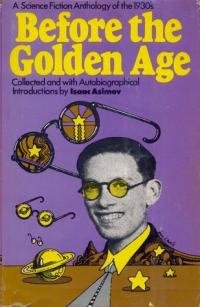
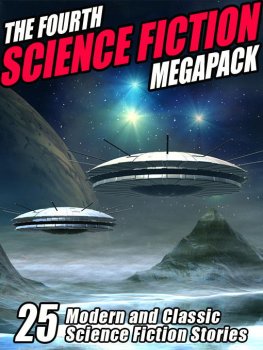
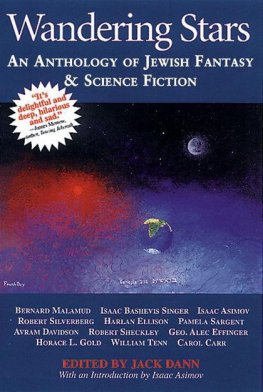
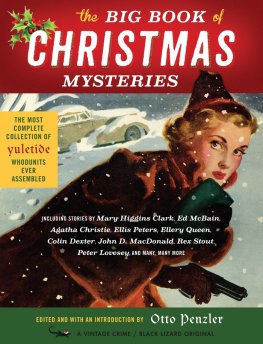
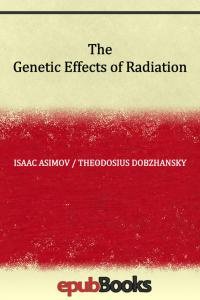
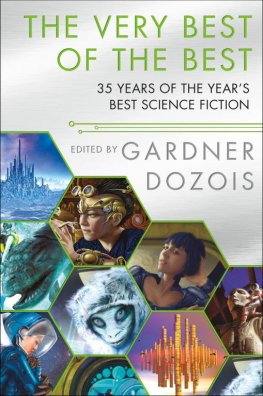
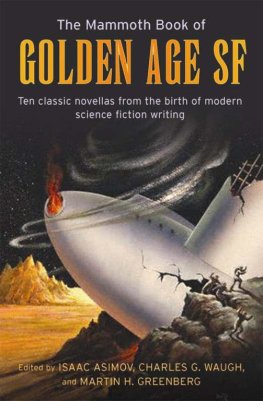
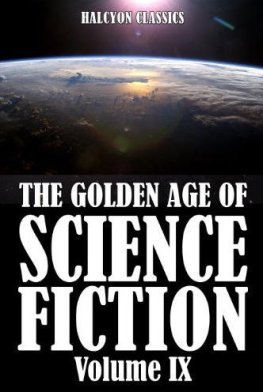
![Merril - The Years Greatest Science Fiction & Fantasy 1: [Anthology]](/uploads/posts/book/220111/thumbs/merril-the-year-s-greatest-science-fiction.jpg)
